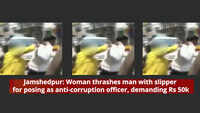
Thiruvananthapuram: While state government processes the Supreme Court order to demolish five apartments for violating coastal regulation zone (CRZ) rules, it will also have to answer why it sat over KCZMA (Kerala Coastal Zone Management Authority) recommendations on the major CRZ violations in state. The Supreme Court order comes at a time when KCZMA is ready to submit its recommendations against the controversial resort project undertaken by Kapico Kerala Resorts Pvt Ltd on Nediyathuruthu island in Vembanad Lake for the third time.
Officials said that Kapico case is one among the numerous instances where state government and local bodies concerned, often overlooked rules to facilitate construction in CRZ areas and then opened the subject to legal complications.
In 2018, 14 applications were pending for clearance. They were filed following MoEF (ministry of environment and forests) notification issued in March 2017, meant for constructions done without mandatory environmental clearances. Over the past three years, KCZMA has unearthed as many as eight major violations, mostly apartments, resorts and commercial constructions in CRZ areas, but often it fails to secure government support.
The Union ministry of environment and forests had earlier sought KCZMA recommendations regarding CRZ clearance for Kapico project after it had received an application from the project proponent for CRZ clearance. They had filed an application with MoEF seeking benefits of MoEF notification in March 2017 under environmental impact assessment notification in 2006.
The project, estimated having construction worth Rs 350 crore, has a built-up area of 28,795 sq m and plot area of 69,083 sq m. In 2013, the high court had ordered the demolition of the building due to violation of EIA and CRZ notifications. The project proponents then moved Supreme Court with a special leave petition and SC passed an interim order directing MoEF to pass appropriate order in accordance with MoEF notification dated March 14, 2017.
KCZMA in its recommendation advocated against issuing CRZ clearance and sent the report to additional chief secretary, department of environment in 2018. Later in January 2019, KCZMA resent the same recommendation after MoEF sent a reminder for the report. The meeting of KCZMA in January 2019 had witnessed dramatic scenes with the former official reportedly feigning ignorance about ever having received the report. It is learnt that KCZMA will again deliberate the matter at the upcoming ratification meeting. KCZMA has already sent the same recommendation to department of environment in the first week of May after it became known that the recommendation was never communicated to the Centre.
Officials said KCZMA is often limited by existing laws. “As per environmental protection act, delegation of power goes to principal secretary or additional chief secretary of environment, chairman or member secretary of pollution control board and district collector. Authority cannot take action but can only file cases. Land scarcity coupled with need for housing and push for tourism have often influenced the lenient stand of the state government and local bodies, who turn a blind eye to CRZ violations,” said an official.
Officials said that Kapico case is one among the numerous instances where state government and local bodies concerned, often overlooked rules to facilitate construction in CRZ areas and then opened the subject to legal complications.
In 2018, 14 applications were pending for clearance. They were filed following MoEF (ministry of environment and forests) notification issued in March 2017, meant for constructions done without mandatory environmental clearances. Over the past three years, KCZMA has unearthed as many as eight major violations, mostly apartments, resorts and commercial constructions in CRZ areas, but often it fails to secure government support.
The Union ministry of environment and forests had earlier sought KCZMA recommendations regarding CRZ clearance for Kapico project after it had received an application from the project proponent for CRZ clearance. They had filed an application with MoEF seeking benefits of MoEF notification in March 2017 under environmental impact assessment notification in 2006.
The project, estimated having construction worth Rs 350 crore, has a built-up area of 28,795 sq m and plot area of 69,083 sq m. In 2013, the high court had ordered the demolition of the building due to violation of EIA and CRZ notifications. The project proponents then moved Supreme Court with a special leave petition and SC passed an interim order directing MoEF to pass appropriate order in accordance with MoEF notification dated March 14, 2017.
KCZMA in its recommendation advocated against issuing CRZ clearance and sent the report to additional chief secretary, department of environment in 2018. Later in January 2019, KCZMA resent the same recommendation after MoEF sent a reminder for the report. The meeting of KCZMA in January 2019 had witnessed dramatic scenes with the former official reportedly feigning ignorance about ever having received the report. It is learnt that KCZMA will again deliberate the matter at the upcoming ratification meeting. KCZMA has already sent the same recommendation to department of environment in the first week of May after it became known that the recommendation was never communicated to the Centre.
Officials said KCZMA is often limited by existing laws. “As per environmental protection act, delegation of power goes to principal secretary or additional chief secretary of environment, chairman or member secretary of pollution control board and district collector. Authority cannot take action but can only file cases. Land scarcity coupled with need for housing and push for tourism have often influenced the lenient stand of the state government and local bodies, who turn a blind eye to CRZ violations,” said an official.
#ElectionsWithTimes
Quick Links
Lok Sabha Election Schedule 2019Lok Sabha Election NewsDelhi Capitals teamMI team 2019Rajasthan Royals 2019RCB team 2019Maharashtra Lok Sabha ConstituenciesBJP Candidate ListBJP List 2019 TamilnaduShiv Sena List 2019AP BJP List 2019Mamata BanerjeeBJP List 2019 MaharashtraPriyanka GandhiBJP List 2019 KarnatakaAMMK Candidate List 2019BJP List 2019 WBLok Sabha Elections in Tamil NaduBSP List 2019 UPNews in TamilLok Sabha Poll 2019Satta Matka 2018PM ModiMahagathbandhanNagpur BJP Candidate ListChandrababu NaiduTamil Nadu ElectionsUrmila MatondkarNews in TeluguMadras High CourtTejashwi YadavArvind KejriwalTejasvi SuryaPawan KalyanArvind KejriwalYogi AdityanathJaya PradaSatta King 2019Srinagar encounter
Get the app









